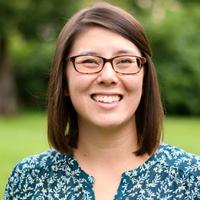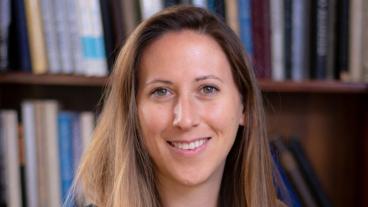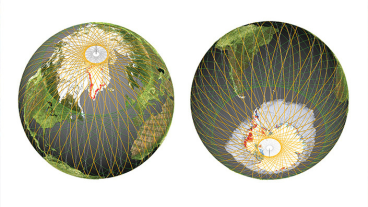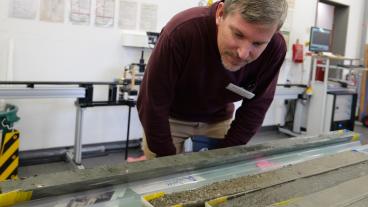Colorado School of Mines, CU Boulder awarded prestigious W.M. Keck Foundation grant for developing new quantum technology

The first-of-its-kind quantum simulator proposed by Mines' Zhexuan Gong and CU Boulder's Shuo Sun could be used to develop novel materials and, in the future, lead to the development of a high-performance quantum computer. The schematic image above shows the proposed quantum simulator, which consists of an array of artificial atoms embedded in a photonic crystal. (Image provided by Shuo Sun/CU Boulder)
Two physicists at Colorado School of Mines and the University of Colorado Boulder have received a $1 million grant from the W.M. Keck Foundation to develop a first-of-its-kind quantum simulator that could be used to develop novel materials and, in the future, lead to the development of a high-performance quantum computer.
Widely regarded as the most important quantum technology right now, quantum simulators are, in essence, special-purpose quantum computers. They can simulate physical systems at a level of detail not possible with even the most powerful classical computers – but are easier to build than universal quantum computers, which are still far from reality at a large scale.
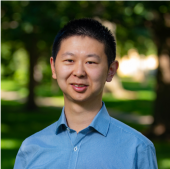
“Quantum simulators, instead of using them to calculate every problem in the universe, you use them to calculate very specific problems,” said Zhexuan Gong, assistant professor of physics at Mines who is leading the grant. “If you wanted to find a superconducting material at room temperature, for example, you need to search through many different types of materials and simulate their properties. This is a painfully slow process on even the fastest classical computer nowadays. A quantum simulator allows you to do such simulation dramatically faster.”
The power of quantum simulators depends mainly on the number of quantum particles they can simulate and the level of control researchers have over how the particles can interact. But the existing quantum simulators largely excel in only one of these two aspects.
Gong and Shuo Sun, assistant professor of physics and an associate fellow at JILA at the University of Colorado Boulder, propose to build a quantum simulator that’s good at both aspects—the first of its kind.
Specifically, the team plans to fabricate a large array of artificial atoms, made of single atomic defects and impurities in a semiconductor. These defect centers can carry bits of quantum information, similar to how transistors carry bits of classical information in an everyday computer. With enough control over the quantum information carried by these defect centers, the team could use this idea to build a large-scale quantum computer, although such level of control still requires many years of engineering effort.
In the near term, the team will couple the defect centers to light that passes through a special type of waveguide known as a photonic crystal. The result is the defect centers will interact with each other, similar to how electrons interact in a real material. By tuning the frequency and intensity of the light, the team can adjust the pattern of the interactions among the simulated particles almost arbitrarily, a level of control not achievable in current quantum simulators.
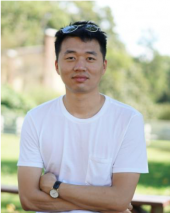
“This control over interaction pattern allows us to simulate particles in a variety of materials including superconductors, and we can also use such flexible interaction patterns to study open questions in fundamental physics or to build faster quantum computers,” Sun said.
The project is the result of a collaboration between Mines and CU Boulder. Gong is a theoretical physicist with expertise in quantum computing and quantum simulation. Sun is an experimental physicist who specializes in nanophotonic devices for quantum technology.
The W. M. Keck Foundation was established in 1954 in Los Angeles by William Myron Keck, founder of The Superior Oil Company. One of the nation’s largest philanthropic organizations, the W. M. Keck Foundation supports outstanding science, engineering and medical research. The Foundation also supports undergraduate education and maintains a program within Southern California to support arts and culture, education, health and community service projects.

